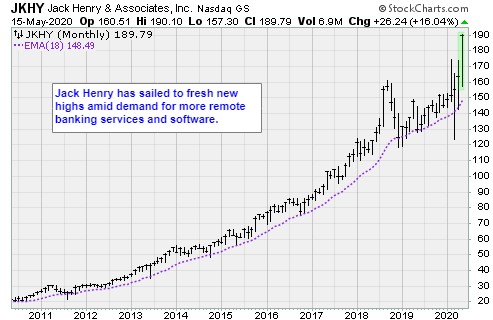Close your eyes and imagine life during the global pandemic without the internet. Scary, right?
COVID-19 accelerated a paradigm shift to XaaS, the delivery of everything as a service. And it’s never going back, according to David McFarlane, a noted academic and venture capital partner.
The world has changed. There is an opportunity for facilitators.
XaaS is not a new trend. McFarlane, a board member at MIT Enterprise Forum and a partner at Converge Venture Partners, notes that businesses spent $93.8 billion in 2018 laying the foundation. They began using the cloud to store data, provide security, while also unifying communications, databases, networking and other infrastructure. That expenditure is projected to swell to $344 billion by 2024.
The global pandemic put all of those investments to test, almost overnight. Food, medicine, healthcare, education, entertainment and other essentials needed to be delivered online. Work from home orders pushed millions out of congested airports, public transit systems and office towers.
Not all of the solutions have been perfect, but the underlying systems proved their mettle.
Investors have rewarded the early winners. Amazon.com (AMZN), Teledoc (TDOC), Zoom Video (ZM) and other service delivery platforms saw their shares surge to new highs. And while the spike in demand is temporary, the bigger trend is undeniable.
Related post: Quarantine Radically Changes Business Behavior
Products and services need to be closer to customers. They need to be on-demand, scalable and delivered on the internet.
Unfortunately, many parts of government and legacy enterprises do not fit that description. Older systems collapsed when they were needed most. Customers were left in the lurch.
Many state governments, for example, still use COBOL (common business-oriented language), an Eisenhower-era programming language. When an avalanche of unemployment claims hit, systems buckled, according to an NPR story.
Sadly, that same 60-year-old code still underlies 43% of the U.S. banking system. The opportunity to bring these systems closer to customers, while improving functionality, is enormous.
Companies that can take advantage of this opportunity will thrive and surge above competitors.
One of the companies doing this is Jack Henry & Associates, Inc. (JKHY). They began their financial technology life by helping regional banks and credit unions control risks and manage regulatory filings. Since 2009, the Missouri company has been more focused on helping customers transition to cloud-based, online banking.
Before COVID-19, business was predictable, with steadily increasing sales and rock-solid margins. Revenues in 2019 reached $1.55 billion, up 5.6% year-over-year. Gross margins were 44%.
In the aftermath of the novel coronavirus, business is booming.
Customers are demanding a way to manage money and pay bills online. Regional financial institutions are stepping up their demands on Jack Henry developers. They’re looking for innovative, cloud-based solutions.
Related post: Pandemic Rings Death Knell for Paper Cash
On May 5, the company reported record sales, operating income and profits for the third quarter. CEO David Foss told analysts that bookings are up 12% from last year’s record run. And total sales advanced 11% year-over-year on the strength of higher data processing, hosting fees and software usage.
It’s a trend that is likely to continue.
A 2019 report from PricewaterhouseCoopers found financial institutions are searching for partnerships with companies that can navigate regulations and data security. Some 43% said cloud-based technology would transform the way services are delivered within the next two years. This will lead to a tidal wave of new spending.
Both culturally and geographically, Jack Henry is the right fit for small town banks and credit unions. The company has also amassed an arsenal of best-in-class fighting tools.
Investor’s eyes have opened, too. It’s now widely understood that COVID-19 changed the world as we know it. Behavioral and technology shifts have been accelerated. The perception is consumers know what is available online and they are not going back anytime soon.
This is a big opportunity for longer term fintech investors.
Jack Henry shares trade at 47 times forward earnings and 8.6 times sales. While neither metric is cheap, this steady fintech has never been cheap. The multiples are within the historic range despite the terrific outlook.
The stock reached $189.90 last week. Based on the larger trend forward, I would expect a move to around $285 by the end of 2021.
This company is yet another major winner of the COVID-19 outbreak and it’s absolutely necessary to keep it on your watchlist.
Best Wishes,
Jon D. Markman




